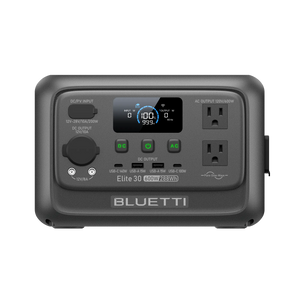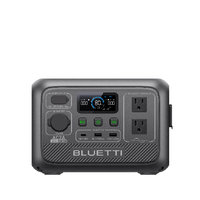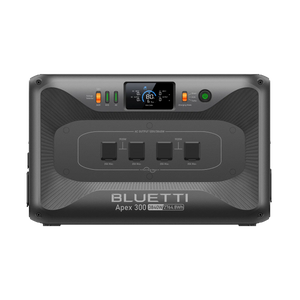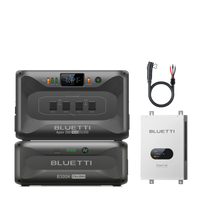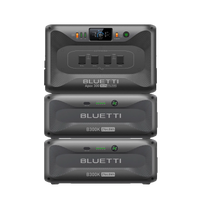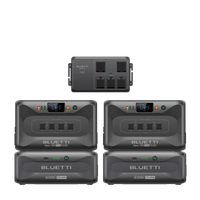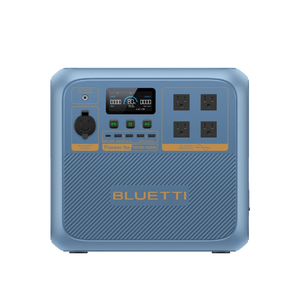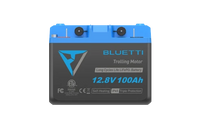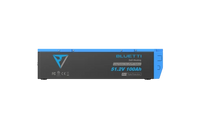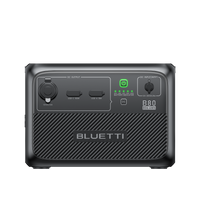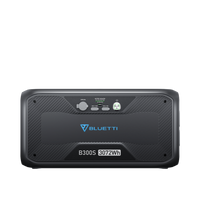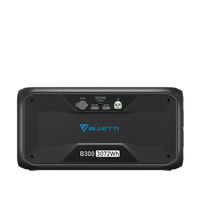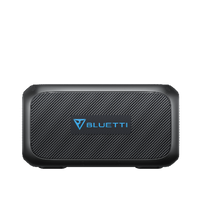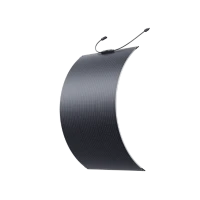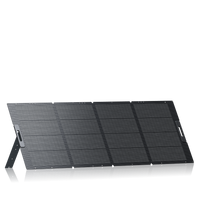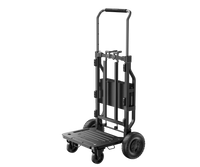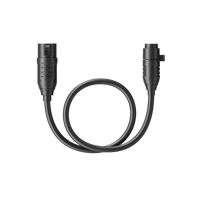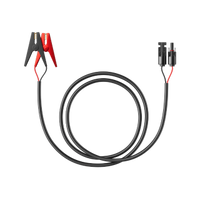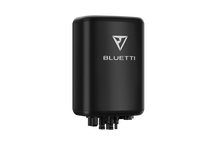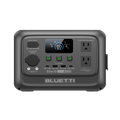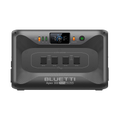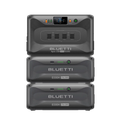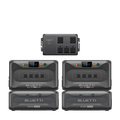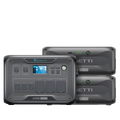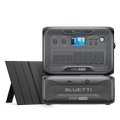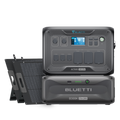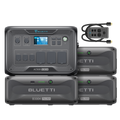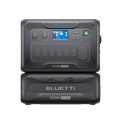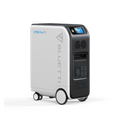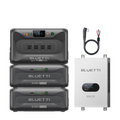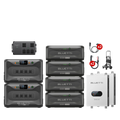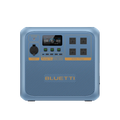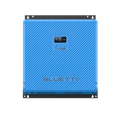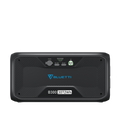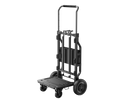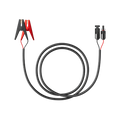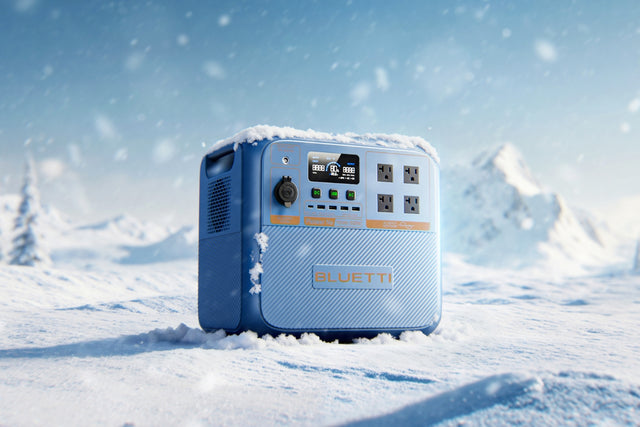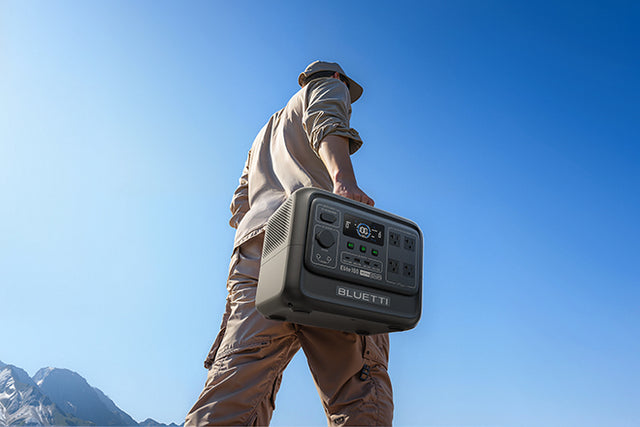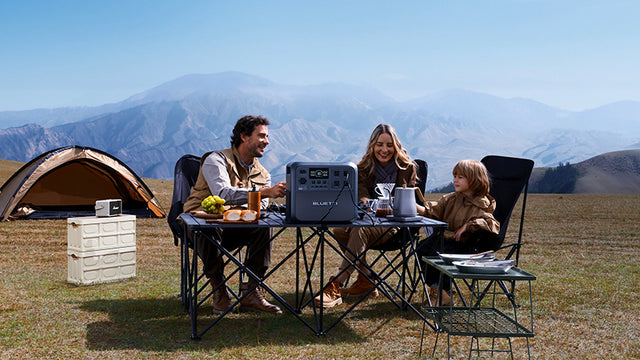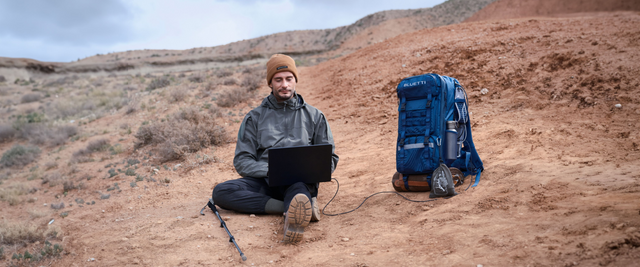Your cart is empty
Shop our productsAre you a boat owner looking for eco-friendly methods to improve your sailing experience? With a growing emphasis on sustainable boating, many boat owners are turning to renewable energy sources to power their yachts. Using portable solar panels and solar generators to collect the sun's energy is one of the most common and efficient methods for this.
In this blog post, we will go over the benefits of solar electricity for boating, as well as the various types of solar systems available and how to pick the best one for your needs.
The Advantages of Solar Power for Boating
Solar power has numerous advantages for boating lovers, making it an appealing alternative for those looking to adopt eco-friendly boating practices.
1) Environmentally Friendly
Solar power is a clean and renewable energy source that emits no greenhouse gases or pollution. By using solar energy on your yacht, you will be lowering your carbon footprint and helping to clean up the environment.
2) Cost-Effective
While the initial cost of a solar-powered system may be higher than that of a traditional marine power system, the long-term savings can be significant. Solar energy requires no fuel and has low operating expenses. These savings can more than offset the initial costs of the system.
3) Quiet Operations
Another advantage of solar-powered boats is their quiet operations as compared to gasoline or diesel boats, resulting in a more serene and pleasurable boating experience.
4) Independence
By utilizing a solar-powered system, you can operate independently of shore power or fuel supplies. With the use of portable solar technology, you can venture into even the most remote areas and enjoy extended excursions without the concern of depleting your power supply.
Types of Marine Solar Systems

There are various types of marine solar systems available, each with its own set of characteristics and advantages.
1) Portable Solar Panels
These are ideal for smaller boats or temporary installations because they are lightweight, flexible, and easy to transport. They are simple to install and connect to your boat's battery or electrical system.
However, since portable solar panels typically have lower power output, they may not be appropriate for larger boats or those with high power demands.
2) Fixed Solar Panels
These panels are fixed to your boat, typically on the roof or other flat surfaces. They are more powerful than portable solar panels and can provide a steady power supply for your boat's electrical needs.
Fixed solar panels are better suited for larger vessels or those with higher power requirements.
3) Solar Generators
These are all-in-one systems that include solar panels, batteries, and an inverter. Solar generators can be utilized as a stand-alone power source or as a backup power source for your yacht.
They are portable and can be transferred between vessels or removed from the boat as necessary.
Choosing The Right Solar System For Your Boat
There are various aspects to consider when choosing a solar system for your boat, with some of the most important ones being:
1) Power Needs
Calculate the total wattage of your electrical equipment and appliances to determine your boat's power requirements. This will help you choose a solar power system with the right power output.
2) Battery Capacity
The amount of energy that can be stored from solar panels depends on the size of the battery bank on your boat. A larger battery bank allows you to store more energy and keep your electrical equipment running for extended periods of time.
3) Space Availability
Take into account the boat's available space for mounting solar panels and housing a solar generator.
4) Budget
The cost of solar systems can vary widely, so it is essential to establish a budget that meets your requirements and preferences. Once again, remember that while solar systems may have a higher upfront cost than conventional power sources, they do help save you a lot of money in the long run.
5) Climate and Location
The performance of solar panels is directly proportional to the amount of sunshine they are exposed to. Thus, a solar-powered system will be more effective if you primarily boat in sunny places. On the other hand, if you often go boating when it's cloudy or dark, you may need a bigger solar array to get the power you need.
Economic And Environmental Benefits of Sustainable Boating
Adopting solar power and other environmentally responsible sailing practices can have significant economic and environmental benefits for both individuals and the boating industry as a whole:
1) Lower Operational Costs
By utilizing solar energy, boat owners can save money on fuel and maintenance, resulting in lower operational costs.
2) Increased Resale Value
Boats with solar systems may have a better resale value as purchasers tend to favor eco-friendly and sustainable characteristics.
3) Reduced Environmental Impact
Solar energy aids in the reduction of greenhouse gas emissions and pollutants connected with traditional maritime power sources. This helps clean the air and water, as well as protect vulnerable marine ecosystems.
4) Industry Growth
New solar-powered technology and products can help the maritime industry expand and innovate in response to rising consumer demand for environmentally-responsible boating options.
Solar Power for Different Types of Boats
Different boats have different power needs and space constraints, which can influence the type of solar system you select. Let us look at how solar electricity can be used on different sorts of boats:
1) Sailboats
Sailboats are ideal candidates for solar power since they often have enough deck or roof area to put solar panels. Furthermore, sailboats frequently have lower power requirements, making solar energy an excellent choice for meeting their electrical needs.
2) Yachts and Motorboats
Larger motorboats and yachts may demand more electricity than smaller boats, but they also have more space for solar panels to be installed. A combination of fixed solar panels and a solar generator can be a viable solution in certain instances.
3) Fishing Boats
Fishing boats frequently have special power requirements, such as powering live wells and fish-finding equipment. Solar power may be an option if the boat has sufficient space for mounting solar panels or storing a solar generator.
4) Pontoon Boats
Solar power is well-suited for pontoon vessels, as their flat decks provide ample space for mounting solar panels. Also, just like sailboats, pontoon boats have low power requirements and can, therefore, be powered entirely by solar energy.
Solar Power Accessories:
Additional solar accessories and add-ons can improve your solar-powered boating experience. Some of these extras include:
1) Solar Charge Controllers
A solar charge controller controls the flow of power from your solar panels to your battery bank, ensuring that your batteries are charged efficiently and safely. This device can also help your batteries last longer.
2) Solar Lighting
Solar-powered LED lighting for your deck, cabin, and navigation lights can be a terrific addition to your boat, offering energy-efficient illumination.
3) Solar Water Heaters
Solar water heaters, which use the sun's energy to heat the water, can be used to supply hot water for your boat's shower and galley. This is an excellent method to decrease your dependence on propane or electricity for water heating.
4) Solar Ventilation
Solar-powered ventilation fans can keep the interior of your boat comfortable and well-ventilated, eliminating the need for air conditioning or powered fans. These energy-efficient fans can help maintain a comfortable environment on board.
Maintenance And Care For Your Solar System
Regular maintenance and upkeep are required to enhance the longevity and efficiency of your solar system. Here are some pointers to keep your solar panels and generator in good working order:
1) Keep Solar Panels Clean
Clean your solar panels on a regular basis to eliminate dirt, bird droppings, and other debris that might affect their effectiveness. Gently clean the panels with a soft brush or cloth and mild, soapy water.
2) Inspect for Damage
Inspect your solar panels on a regular basis for indicators of damage, such as cracks, loose connections, or corrosion. Address any concerns as soon as possible to avoid further harm or decreased efficiency.
3) Monitor Performance
Track your solar panel’s output with the help of a solar charge controller or monitoring device. This will allow you to detect any problems early on and keep your system running smoothly.
4) Battery Maintenance
Keeping your boat's battery bank in good condition will allow your solar panels to last longer and provide more energy. This includes cleaning the batteries, assuring secure connections, and checking fluid levels in lead-acid batteries.
5) Solar Generator Care
Maintain your solar generator's cleanliness and dryness for optimal performance. Regularly inspect the generator for signs of deterioration or damage, and address any problems immediately.
Innovations in Solar-Powered Boating
As interest in solar-powered boats and green boating grows, so do the solar technologies for marine applications. Here are a few noteworthy advancements in this area:
1) More Efficient Solar Panels
Solar panels with better efficiency rates have been developed as a result of technological breakthroughs, allowing them to generate more power with the same surface area. This is especially useful for boat owners who have limited space for mounting solar panels.
2) Flexible and Lightweight Panels
In order to facilitate installation and transportation, modern solar panels are becoming more bendable and lightweight. These panels can be more easily integrated into a boat's design, resulting in a more seamless and visually pleasant look.
3) Hybrid Systems
Some boat manufacturers now offer hybrid solar-diesel systems that combine solar power with a traditional diesel engine.
These systems combine the advantages of solar electricity with the dependability of a diesel engine when needed.
4) Solar-Powered Electric Boats
Electric boats driven solely by solar energy are becoming increasingly popular, offering a completely green and sustainable boating experience.
To meet their power requirements, these boats frequently have massive solar arrays and complex storage systems.
Sailing The Seas of Sustainability With Portable Solar Panels And Generators

In conclusion, compared to conventional marine power systems, using portable solar panels and solar generators is more long-lasting, affordable, and easier on the environment. The boating sector will continue to innovate and evolve as more boat owners embrace solar power, offering increasingly efficient and innovative solar solutions for a wide range of vessels.
Boat owners can choose the best solar system for their needs by evaluating aspects, such as power requirements, battery capacity, available space, budget, and environment. Furthermore, the use of solar accessories and solar power in various boat types demonstrates the versatility and adaptability of this renewable energy source.
As we sail towards a greener horizon, solar power is poised to play a critical role in defining the future of the boating industry. By switching to solar power, we can still enjoy the tranquility and thrill of the open sea but without depriving future generations of a chance to do the same.
If you would like to contribute to eco-friendly boating, please feel free to explore our wide range of portable solar products. We offer many different types of portable solar panels, generators, and kits, and can help you choose one based on your power needs, storage space, climate and location, and budget.
Shop products from this article
Be the First to Know
You May Also Like

Deadly Flooding Devastates U.S. South and Midwest — What You Need to Know

BLUETTI Teams Up with Leave No Trace to Power Sustainable Outdoor Adventures

